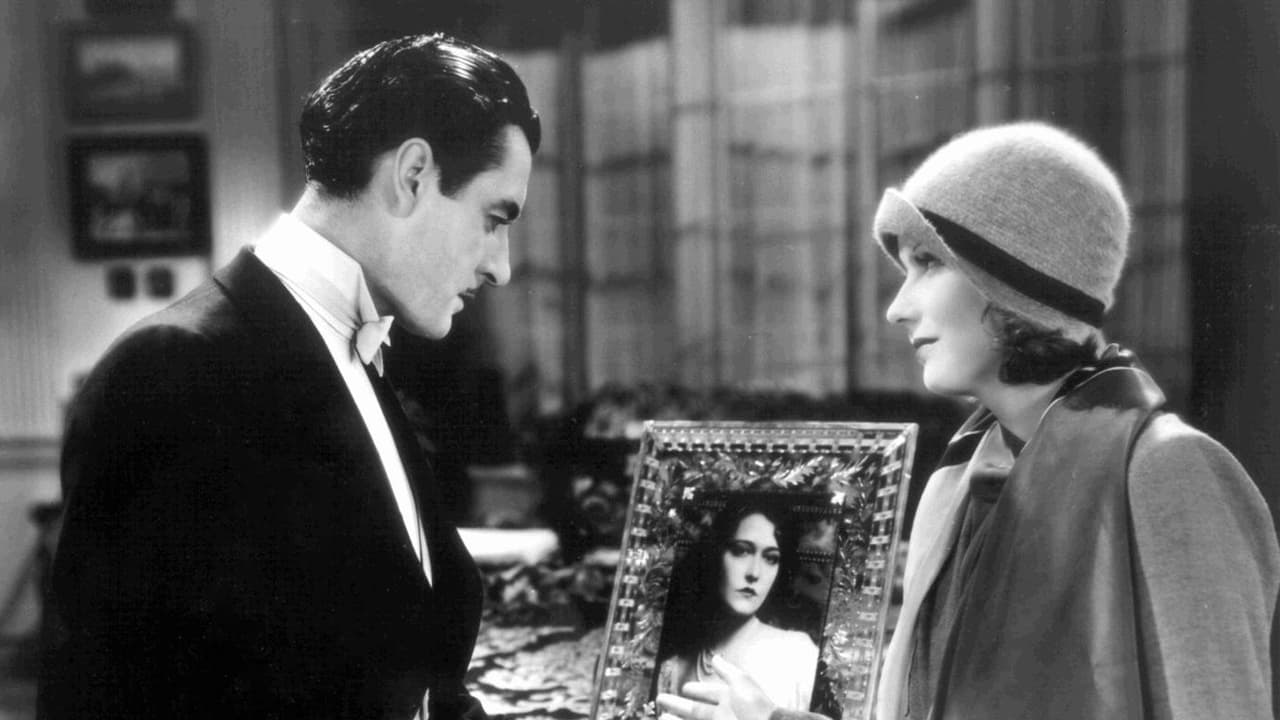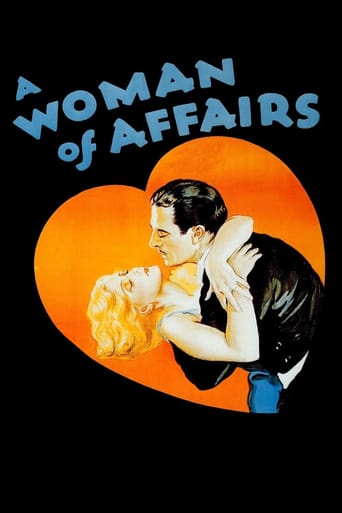



Great Film overall
A Disappointing Continuation
Strong acting helps the film overcome an uncertain premise and create characters that hold our attention absolutely.
View MoreOne of the film's great tricks is that, for a time, you think it will go down a rabbit hole of unrealistic glorification.
View MoreThe film's theme is honor in its various guises and how concealing the truth to preserve a dead man's honor brings misery to all concerned. The opening subtitles tell us that Garbo/Diana is a gallant lady. The viewer needs to be told this for otherwise we would conclude that her suffering as well as the suffering caused others was needlessly brought about by her foolish error in judgment. Garbo is perfection in her shifting moods - first as a young woman in love, playful and happy with her true love, Gilbert, then when she makes that fateful mistake which she thinks brings honor to herself, and so on right up to her death 10 years later after her self-image of an honorable woman has been taken from her.Gilbert's role is subsidiary, not sympathetic, and of all things, boring. Most surprising, he lacks fire, There's no passion in his scenes with Diana, except in a late scene in his rooms where Diana breaks through his defenses, telling him she never said "I love you" to any of the other men in her life, only to Gilbert, and that makes her virtuous in Gilbert's code of morality. The actor who does exhibit fire is the young Douglas Fairbanks Jr, whose self-loathing is redirected to a passionate hatred of his sister.I liked Garbo's action in the reconciliation scene where she walks over to Gilbert's father with an unlit cigarette and when he strikes a match she takes out her lighter and lights it herself, thereby emphasizing that she will not bow again to his idea of honor. I also liked the director's choice of showing the widow Diana's 7-year exile in Europe through a series of newspaper photos and their captions. This expedient kept the story focused on the interactions of the main characters. And THE main character, Garbo, is so superb that the script problems make no difference to one's enjoyment of this flawed film.
View MoreGarbo is liberated enough to smoke in this film but her lifelong love never gathers the courage to oppose his father and wed her.Here we see the deadening effects of marriage for appearance's sake rather than authentic desire.I've never been taken much with pretty-boy John Gilbert. He strikes me as too perfect-looking to care much about. In this movie, the handsome Hobart Bosworth, who plays his father -- 61 when this was filmed but appearing older -- is far more interesting.I wonder if the real reason Sir Morton stood in the way of his son's romance was his own interest in Diana.In some ways this film doesn't hold together very well.It starts out with an almost slapstick sequence that doesn't go with the serious tenor of the rest of the film. And later, why would those bent on jailing David show up at his honeymoon suite in France and not arrest him on his home turf in Britain? And what was the significance of Garbo drawing the ace of spades before driving off into the night? Clearly she was depressed, but why the implication that a card pushed her over the edge? While the theme of frustrated love is interesting for a bit, this film ultimately peters out disappointingly.
View MoreA WOMAN OF AFFAIRS (MGM, 1928), directed by Clarence Brown, from the then controversial novel, "The Green Hat" by Michael Arlen, reunites then popular love team of John Gilbert and Greta Garbo in their third collaboration on screen. Initially teamed under Clarence Brown's direction in the highly popular FLESH AND THE DEVIL (1926), followed by LOVE (1927), taken from the Leo Tolstoy's classic novel, "Anna Karenina," Gilbert and Garbo once more star in a silent melodrama about love and tragedy. Unlike their earlier screen efforts, their characters in this story are already acquainted since childhood, leaving no chance of meeting and falling in love, but the difference here is that their relationship is interfered by a third party who happens not to be another lover or spouse. And unlike their earlier two films, Garbo is more the central focus here than Gilbert.The story begins quite amusingly, finding the wild and merry Diana Merrick (Greta Garbo) driving recklessly down the road in the Mack Sennett Keystone comedy fashion, nearly missing the ditch diggers as she drives over them. Moments later, the characters in the story, the Holderness and the Merricks, are introduced with each passing scene. Diane is a carefree woman who has loved Neville Holderness (John Gilbert) since childhood. She has a brother, Jeffry (Douglas Fairbanks Jr.), a pampered youth who's so bored with his life that his only satisfaction is boozing up with liquor. Jeffry's closest friend, David Furness (Johnny Mack Brown), tries to stop him from his wild and wicked ways, but to no avail. Neville's father, Sir Morton (Hobart Bosworth), disapproves of the Merrick family's way of life. When he learns that his son wants to marry Diana, he manages to send Neville away to Egypt for a few years, in hope that the two will forget one another through the passage of time. Two years later, Diana marries David. On their wedding night, detectives (one of them played by character actor Fred Kelsey) enter their honeymoon suite in France to arrest David on the charges of theft. Before he can be arrested, David ends his life by jumping out the window. To keep David's name clear for decency sake, she secretly sets out to repay the victims of David's past crimes, a deed only known to the family physician, Doctor Hugh Trevelyan (Lewis Stone). Over the next few years, Diana makes the gossip columns as being a widow of many love affairs throughout the world. As for Neville, he becomes engaged to marry a nice young girl named Constance (Dorothy Sebastian), whom, as Diana describes through the title cards, as a girl "whose eyes are so true and clean." But Old Man Holderness, knowing how his son and Diana still feel about one other, continues to keep the scandalous Diana away his son, causing Neville to become like Jeffry, an unbearable alcoholic.While not as famous by today's standards as FLESH AND THE DEVIL, A WOMAN OF AFFAIRS somewhat predates those "Peyton Place"-type soap-operas or Lana Turner melodramas quite popular during the 1950s and 60s. It also shows that aristocratic families may have all the luxuries that money can buy, but money does not always buy happiness. Douglas Fairbanks Jr.'s portrayal as an unhappy youth who turns to drink, is quite believable, especially when his glassy eyes, uncombed hair almost covering a portion of his eye, with whiskey glass in his hand that at times has him resemble a young John Barrymore. Whether this was intentional or not will never be known. Fairbanks, however, does well with his early screen performance.Clarence Brown's direction with the Gilbert-Garbo loves scenes do have some bonuses, but are not as "hot" as in FLESH AND THE DEVIL. One scene that stands out is finding Diana, wearing a special ring on her finger, making love to Neville on the couch, with Diana telling him, "I would only take it off for the man I love." The camera then pans down to her hand just as the ring slowly slips off her finger. As for the story itself, it takes place during a span of ten years, yet the characters in the plot don't look any different in the conclusion as they appear in the opening, making the storyline look more as if it takes place in a span of ten months than ten years. The costumes and hairstyles are obviously modern late 1920s, which works out better in the latter portion of the story than the early segments, circa 1918. And although Garbo has that special beauty, especially when properly photographed, she doesn't look particularly attractive in some of those costumes designed for her, mainly when wearing those flapper-designed hats. Essentially a silent movie that was initially distributed in theaters with recorded scoring, one wishes such a score for this film have been used for its current video distribution, which comes with a Thames stereo orchestral soundtrack. The stereo score has its moments, but when it comes to its slow tempo violin playing in some segments of the story, it becomes a real sleep inducer. A WOMAN OF AFFAIRS was remade by MGM in 1934 as OUTCAST LADY starring Constance Bennett and Herbert Marshall. Both versions are available for viewing on cable TV's Turner Classic Movies.One final note: A WOMAN OF AFFAIRS was one of the 13 feature films presented on the public television series, MOVIES, GREAT MOVIES (Original air date: October 26, 1973), a 50th anniversary tribute to Metro-Goldwyn-Mayer of the silent era, as hosted by Richard Schickel, on WNET, Channel 13, in New York City. Clocked then at 109 minutes, the TCM print differs in scoring and length, either at 98 (Thames) or 91 minutes. (***)
View MoreA soap opera on the grand scale with the great screen team of John Gilbert and Greta Garbo. Like many "fallen women" of her period, Garbo's not "bad," but "misunderstood."
View More